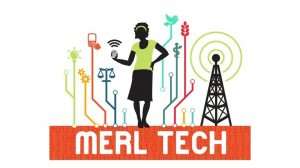- Last Updated: March 21, 2025
The critical role of data collection in humanitarian aid delivery
Amidst escalating global crises, the Global Humanitarian Overview reports over 300 million people worldwide are in need of urgent humanitarian assistance. However, effective aid distribution also requires the collection of data to guide the distribution and allocation of aid and to ensure it reaches those most in need while preventing resource duplication and misallocation.
Yet, humanitarian efforts face a delicate balance, navigating between swift aid delivery and safeguarding the dignity and security of affected communities. In crisis and natural disaster zones, where internet access is limited, manual data collection adds complexity to the process, further challenging rapid response coordination.
By adopting the best practices in data collection outlined in this article, humanitarian aid organizations can safely and securely collect data to ensure aid reaches those who need it most without compromising their safety or privacy.
Best practices for data collection in humanitarian initiatives

Data collected in crisis environments, ranging from personal identifiers to health status, is highly sensitive and mishandling it can endanger individuals, subjecting them to stigma, discrimination, or worse. Moreover, the chaotic nature of such environments increases the risk of data breaches and loss, complicating response efforts further.
To safeguard both data respondents and collectors, humanitarian organizations must enhance data collection in three key areas:
- Data access controls: Utilizing data collection tools with restricted access capabilities, which limits manipulation and access to authorized personnel only, reducing the risk of internal breaches.
- Compliance with international standards: Adhering to global data protection standards like SOC-2 and GDPR ensures rigorous privacy and security practices, fostering trust with stakeholders and maintaining data integrity.
- End-to-end encryption: Encrypting data from collection to storage (or sharing) prevents unauthorized access, both in transit and at rest. Employing advanced encryption measures, including managed encryption keys, ensures data accessibility only to authorized individuals.
Additionally, secure data transmission protocols, such as SSL/TLS, safeguard data confidentiality during transfer between field devices and headquarters. These measures collectively fortify data security, enabling humanitarian organizations to operate effectively in crisis zones while protecting the privacy and safety of those they serve.
Upholding data quality amidst chaos
Maintaining data quality in humanitarian settings is crucial for informed decision-making that saves lives and optimizes resource allocation. Feedback gathered on the ground can signal urgent needs for program adjustments or interventions.
However, ensuring data accuracy and reliability amidst chaos poses significant challenges. Humanitarian workers, operating under immense pressure and constraints, may encounter errors and inconsistencies.
Fortunately, adhering to these best practices can help mitigate these challenges:
- Robust quality checks: Integrate automatic quality checks into the data collection process to validate information as it’s recorded, preventing illogical or out-of-range entries.
- Regular data audits: Conduct routine audits and backchecks to identify and rectify errors early, employing both automated tools and manual reviews by specialists.
- Incorporate bias checks: Include specific questions to capture data collectors’ observations; this can provide context and help verify data reliability.
- Simplify survey design: Design easy-to-understand surveys and data collection instruments to reduce errors, especially considering the limited training sometimes available to field workers in humanitarian settings.
- Thorough training: Ensure data collectors are well-trained in technical aspects and ethical considerations such as confidentiality and informed consent.
- Use real-time monitoring: Employ data collection tools enabling real-time monitoring for immediate feedback and corrective actions, including shareable dashboards highlighting trends and errors as data is submitted.
Providing data access with security in mind
Crisis situations require quick access to data for actionable and impactful decision-making by program managers and decision-makers. Best practices for enhancing data access in humanitarian efforts include:
- Minimize harm: Uphold the principle of doing no harm by ensuring data collection efforts do not worsen respondents’ situations or cause additional distress.
- Appropriate consent scripts: Craft clear consent scripts to inform respondents about data collection purposes and usage, managing expectations and reinforcing confidentiality and ethical practices.
- Collect only essential data: Gather only data that is directly pertinent to project goals to alleviate respondent and collector burden, reducing the risk of inaccuracies due to fatigue or misunderstanding, and reducing the risk to respondents in the event of a data breach.
- Data visualization dashboards: Use platforms that can provide real-time data visualization to give program managers a comprehensive understanding of a crisis situation on the ground and help facilitate informed decisions.
- Selective data sharing: Efficiently share summarized data via dashboard links while safeguarding sensitive information, ensuring stakeholders access necessary insights without compromising security.
- Design for simplicity: Simplify data collection workflows to accommodate non-researcher field workers, minimizing training requirements and human error and prioritizing ease of use for busy field personnel.
How SurveyCTO assists with data collection in humanitarian aid
In crisis zones and areas requiring humanitarian action, data security and integrity are non-negotiable. SurveyCTO offers a range of features to ensure secure and efficient data collection, supporting best practices for data security, quality, and access.
Data security
SurveyCTO lets you implement robust survey security measures in your data collection workflows. These include strict access controls, password-protection options, end-to-end encryption, user roles to safeguard data against unauthorized access, and SSO functionality. As a platform, security is also built into our product with our SOC-2 certification and GDPR compliance.
Security throughout the data lifecycle: SurveyCTO’s encryption includes AWS-managed keys for server dataset encryption, encryption of data on mobile devices, and encrypted data transfer via SSL, ensuring data security during transmission. We also let users encrypt sensitive data before uploading it to a server dataset, to ensure full protection from data collection to storage.
Security throughout the data lifecycle: SurveyCTO’s encryption includes AWS-managed keys for server dataset encryption, encryption of data on mobile devices, and encrypted data transfer via SSL, ensuring data security during transmission. We also let users encrypt sensitive data before uploading it to a server dataset, to ensure full protection from data collection to storage.
To learn how to encrypt data before uploading it to a dataset, you can explore the support article “Protect data in server datasets using encryption,” or follow the use case “Encrypted server dataset and refugees.”
By adopting measures for comprehensive data security management, humanitarian agencies can safeguard beneficiaries’ privacy, ensuring confidentiality throughout the data lifecycle. This not only aligns with legal and ethical standards but also fosters trust with stakeholders.
Data quality

SurveyCTO provides a tailored set of features to uphold data quality in humanitarian and field data collection settings, which is essential for informed decision-making and program management.
Here’s how SurveyCTO supports rigorous data quality:
- Automatic quality checks: Integration of automated checks ensures data accuracy and reliability by validating entries against predefined criteria, alerting you to inconsistencies or out-of-range values.
- Audio and text audits: These features allow for recording audio and performing text audits to monitor enumerator adherence to protocols, ensuring ethical and accurate data collection.
- Bias checks: Custom questions capture data collectors’ insights, facilitating cross-validation and scrutiny, which is vital for data integrity in rapidly changing environments.
- Real-time data monitoring: This empowers teams to quickly catch and address data quality issues promptly, adjust strategies, and ensure high-quality data collection.
- Training and support: Comprehensive training materials and support resources prepare data collectors effectively, enhancing overall data quality through platform guidance and troubleshooting assistance.
Data access
SurveyCTO offers a robust set of features to improve data access in humanitarian efforts, facilitating more efficient aid delivery. Here’s how SurveyCTO enhances data access:
- Sophisticated data visualization: Integrated support for dynamic real-time dashboards enables program managers to access real-time visualizations on platforms like Google Sheets, aiding in monitoring and adjusting strategies promptly.
- Controlled data sharing: Secure sharing of customized data views with external stakeholders ensures necessary access without compromising data privacy.
- Streamlined data collection tools: User-friendly survey design features like relevance (skip logic) and choice filters minimize errors and enumerator fatigue, making it easier to collect only essential data.
- Strong data access controls: Flexible user roles allow data managers to decide who can view or edit specific data, maintaining strict governance standards while still facilitating efficient data distribution to meet organizational needs.
Strengthening humanitarian efforts through secure and ethical data collection
In the complex landscape of humanitarian aid, the integrity and security of data collection are not merely operational concerns but are central to the effectiveness and ethics of aid delivery. SurveyCTO offers the robust security features, quality controls, and ethical compliance mechanisms necessary for handling sensitive information in crisis environments. Its platform not only protects against data breaches but also ensures accurate, timely data collection to enable organizations to conduct on-the-ground needs assessments and other data collection efforts—ultimately guiding better-informed decisions and actions.




